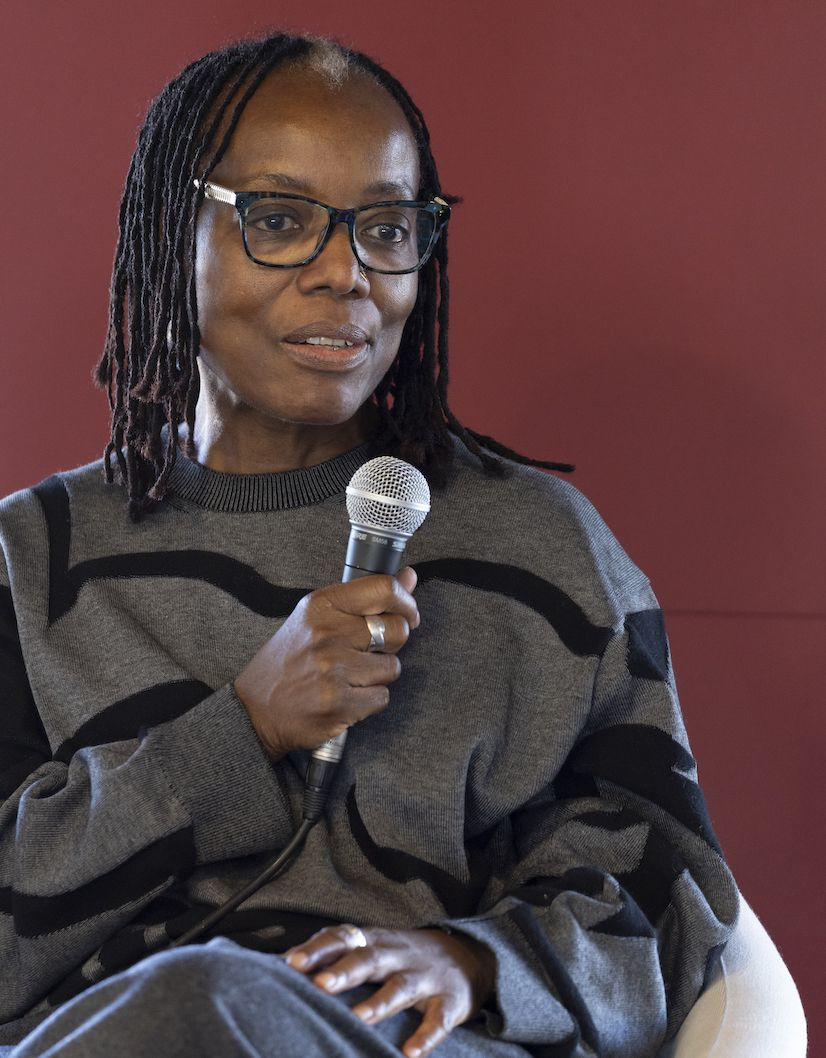
Tsitsi Dangarembga, DLitt (honoris causa), Rhodes University
Author and filmmaker, Director
Institute of Creative Arts for Progress in Africa, Harare
Born in 1959 in Mutoko, Zimbabwe
B.Sc. in Psychology, University of Zimbabwe, Diploma in directing and screenwriting, Deutsche Film- und Fernsehakademie Berlin
Project
Ubuntu 2.0: Insights for a More Sustainable Future from Ancient Bantu-Speaking Cultures
Ubuntu 2.0 is a rendering in nonfiction and fiction of the ancient ideological system of Bantu-speaking peoples whose cultures refer to it with words derived from the cultures’ respective words for “person.” This system is most widely known by the Zulu word “Ubuntu.” “Ubuntu” is frequently translated in mainstream discourse as the quality of being human. In philosophy it has come to be characterised as a form of “humanism.” However, the term “humanism” is bounded by the knowledge systems of European modernity through which the concept was created. Consequently, the full spectrum of meaning signified by the term “ubuntu”—a concept that arose outside of the “humanism”-generating knowledge system—is not fully captured by notions of humanity. “Ubuntu” speaks to how an individual human being can function well and sustainably as a person in their environment. The word answers the question of how we can be good people. The answer is illustrated in the chiShona greeting “I am well if you are well too.” According to Micere Githae Mugo (The Imperative of Utu/Ubuntu in Africana Scholarship, Daraja Press, 2021), the logical conclusion of not being well is death. Thus, the meaning of the chiShona greeting can be expanded to mean: “I am dead if you are dead, too”; or “I live if you live, too.” Mugo formulates the central idea of “Ubuntu” in this way: “I am because you are and since you are, therefore I am.” Recognising the relationship between ideological and economic systems, Ubuntu 2.0 contributes to retrieving what has been lost in translation and deploys this to suggest a paradigm for a practical, person-focused ubuntu in a period of late capitalism.Recommended Reading
Dangarembga, Tsitsi. Nervous Conditions. Faber & Faber, 2021. First published 1988 by The Women’s Press. German: Aufbrechen. Translated by Ilija Trojanow. Orlanda, 2019.
—. This Mournable Body. Graywolf Press, 2018; Faber & Faber, 2020. German: Überleben. Translated by Anette Grube. Orlanda, 2021.
—. Black and Female. Faber & Faber, 2022. German: Schwarz und Frau: Gedanken zur postkolonialen Gesellschaft. Translated by Anette Grube. Quadriga, 2023.
Publications from the Fellow Library
Dangarembga, Tsitsi (Frankfurt am Main, 2025)
Überleben : Roman The Mournable Body
Dangarembga, Tsitsi (Utrecht, 2024)
Dangarembga, Tsitsi (Milano, 2024)
Africana : viaggio nella storia letteraria del Continente Varia
Dangarembga, Tsitsi (Utrecht, 2023)
Dangarembga, Tsitsi (Frankfurt am Main, 2023)
Aufbrechen : Roman Nervous conditions
Dangarembga, Tsitsi (São Paulo, 2022)
Esse corpo lamentado This mounable body
Dangarembga, Tsitsi (São Paulo, 2022)
O livro do não The book of not
Dangarembga, Tsitsi (Berlin, 2022)
Verleugnen : Roman The book of not